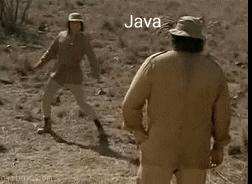By saying “Dash has been trying to evolve something like Peershare”, you mean having a votable coinbase tx? If so, that is awesome feature but not a selling point of a platform. DAO is much more than that.
They are not difficult to understand, it is a blockchain based token ownership tracker with two special functions: votable coinbase tx and dividend payout via external value tokens. That is about it, motions are not part of original design right? Also motions are just for show as they have no real value. It is glorified poll that considers stake of a shareholder. They have no action.
I do not really know what to comment on this. You should look wider than that.
[quote=“JordanLee, post:1, topic:4022”]
Let’s say we want to use the Ethereum blockchain to execute a smart contract that will allow two people to bet on the outcome of a major political election. This is actually a pretty straight forward smart contract (when described in human language), but Ethereum can’t do it. Among the multitude of problems is even determining who won. The entire world will agree about who won, but the blockchain will remain unaware.[/quote]
Let me get back to this. Are you sure a Ethereum can not run a script which will parse a news sites and return a result to a function? As Ethereum is turing complete this is theoretically feasible. Also, maybe in the future you will have an API for “who is current president of XY?” so a smart contract can just pull json and tell which is what. In this case such script would be a weak AI in service of DAO, but without weakness of being centralized.
About a year ago I’ve started writing a paper on DAO’s in general, I have never published but let me just show few definitions for sake of this debate:
Decentralized organization
Abbreviated “DO”
The idea of a decentralized organization takes the same concept of an organization, and decentralizes it. Instead of a hierarchical structure managed by humans interacting in person and controlling it via the set of agreed rules and laws, a decentralized organization involves a set of humans interacting with each other according to a protocol specified in code, and enforced by the public ledger, ie. the blockchain.
Decentralized autonomous organization
Abbreviated (DAO)
The main difference between a DA and a DAO is that a DAO has internal capital; that is, a DAO contains some kind of internal property that is valuable in some way.
Decentralized Autonomous Corporation
abbreviated “DAC”
A Decentralized Autonomous Corporation is a decentralized network composed of WeakAI autonomous agents which perform repetitive tasks and human agents which participate in decision making through democratic and meritocratic process. DACs are basically a subclass of DAO’s that pays dividends on purchasable and tradeable shares which potentially entitle their holders to continual receipts based on the DAC’s ability to generate profit.
Now in this theoretical case where we use Ethereum to host a DAO, where you have a:
- infinite multisig wallet (owned by all shareholders),
- you can employ trusted and decentralized Weak AI’s for external data input,
In this case motions have direct effect on shared wallet (no need for trusted executor) or on shared and commonly owned data.
Is this not closer to DAO than what Peershares based implementation is?


